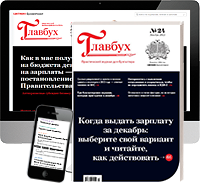
Languages: English | File Size: 22.15 MB
Audit directory permissions in your Windows systems quickly and easily. NTFS permissions are used to manage access to the files and folders in NTFS file systems. NTFS Permissions Auditor allows you to quickly analyze, verify and review any NTFS folder permissions. Our free version provides you with deep and detailed audit results while the Pro version offers additional features such as powerful, customizable filtering, exports to various formats, and more.
Easy to setup and get started
Get up and running with just one installation - no other configuration is needed.
Fast and accurate
Immediate and accurate insights into NTFS permissions for all target folders.
Versatile filters
The filters incorporate lots of factors - use вЂAnd' and вЂOr' to manage them and get the information you need. You can even add more factors after you've filtered by department, position or manager if necessary.
The account view
This view allows you to see users and groups, and all the rights and directories for each user.
Optimized caching mechanism
To make results faster and more efficient than with similar tools.
Use filters during or after the audit to get the exact information you need:
- Basic permission
- Advanced permission
- Permission access type (Allow/Deny)
- Permission is inherited
- Directory inherits permissions
- Domain name (NetBIOS)
- Domain SID
- Group contains no members
- Permissions are identical to parent directory
- SID cannot be resolved to account name
- Apply to
- Directory full permissions list
- Account state
- Account name
- Account SID
- Account disabled
- Folder owner
- Account manager
- Account department
- Account job title
Export
You can export audit results to a range of file formats including Excel (XLSX), CSV, XML, HTML and PDF. Exports can be performed in two ways - folder view export (categorized by folders) and principal view export (categorized by accounts).
Folder tree view
Hierarchical folder view providing all folder details such as path, owner, permissions, etc.
Account view
See all users, groups and computers, and all directories to which they have access.
Account data
See the main information about the account - display name, security identifier (SID), description and additional data such as department, manager, job title, etc. For group accounts, you can display information about direct and nested group members.
Powerful and diverse filters
The filter manager offers a wide range of options to filter audit results and can be applied in two ways - audit time filtering and post audit filtering, which enables you to filter data and change filter conditions without needing to redo the audit.
Exclude directories and accounts
Exclude unnecessary directories by specifying the exact path or just the directory name. You can also exclude system directories and reparse points from your audit results, limit audit depth by specifying directory depth limit and exclude disabled accounts and specific accounts from audit results.
Data storage
All data can be stored in the local, secure database. No additional setup is needed - it's all included in the installation. You can access historical audit data at any time.
Don't overload Your system
Fast and efficient, it uses RAM and CPU efficiently to generate results as quickly as possible without overloading PC resources. It uses various caching mechanisms to reduce Active Directory request counts to the minimum.
Change reports
You can compare two audit results and see what has changed. Change reports will show you which directories, directory permissions and group members have been removed, added or modified.Release Notes:
- Release notes were unavailable when this listing was updated.
Software Requirements:
- Windows XP SP3 and above (including Windows 10 and Windows Server 2016).
- Microsoft .NET Framework 4 Client Profile and above.
Homepage
У вас нет разрешения на просмотр ссылки, пожалуйста Вход или Регистрация









